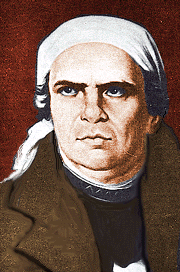Cuāuhtemōc
Banned
Any possibility of Mexico snagging a slice of the Oregon Country? 
Oh yeah Mexican Superpower!
Oh yeah Mexican Superpower!
Any possibility of Mexico snagging a slice of the Oregon Country?
Oh yeah Mexican Superpower!
The Pacific shall become a Mexican Lake, no!
How funny it would be if Mexico took the Philipines?
Can't wait!
Look forward to the next update!
With luck, Allende's Mexico can put itself on a stable footing and get itself a nice little navy to go with its army.
Excellent.
What happened to the Federalists? I think they would still be around, probably damaged after opposing the Cuban War.
Mexican Hawaii?



Arkhangelsk
Good to see more and the map helps remind people what's been happening.
Sounds from the comment about liberal failures in Peru that the Spanish manage to hold on there, at least for the moment. That could have some interesting impacts.
Also the key factor is possibly that a good precedent has been set for a peaceful transfer of power, even with the new President being someone disliked by many of the establishment.
Best of luck with the studies.
Steve
Man, I just love this timeline. You do such an amazing job.
I think you handled Monroe's term very well. Although I am unclear as to how the American's hold on in Cuba with two rebellion's going on at the same time. I could imagine the same objections to annexation of mexico as made in 1848 would pertain to Cuba in 1819 (they very well might have been). How is this concern satisfied?
So in the election of 1824 the parties are Republicans and Democrats? No Whigs? I ask this because the mental connection one is supposed to make with the term Whig is one of benevolent government, while the idea of Democracy was rather "unnerving" to the elites of the day. Remember the intent of the constitution was in some ways to place a check on the "Demos", the people, so as to keep them out of mischief.
How exactly did the Federalists fade away? No Hartford as you indicate might suggest they are relevant for at least one more election (1820?), I am curious as to how you have them implode in this TL (and I certainly think they do), their demise is important just as the adaption, by Clay, of many of their central tenants is? The demise of the Federalists leads in some ways to the evolution of Whigs where you would find many old Federalists (JQA as an example), and many of their old ideas, hence Jackson at times calling them "Federalists".
Also leads me to another question is Clay the Clay of our TL or is he somehow different? In his later days, Clay was much more isolationist (he opposed OTL's Mexican war, IIRC), and much more concerned with domestic policy although at this stage in his career he is far more hawkish (although with no "political" Jackson, he does not have to counter Jackson's hawkish attitude) and is personally obessed with defeating Jackson. I think it would be interesting to observe the evolution of Clay without Jackson as a counterweight and may or may not breed a significantly different character then OTL's.
Edit: I agree with Steve on Canada, I sincerely doubt absolute assimilation, although the Ontario Peninsula may be a candidate for rebellion and eventual statehood beyond that I think is ASB, the evolution of Canadian identity is worth observing in this TL
Just some food for thought. As always keep up the good work.
I can't wait until the next update! MEXICO!